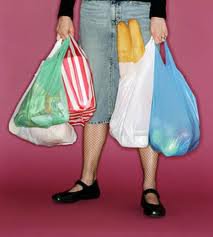SANTA MONICA—In a voting session that lasted well into the night on September 1, the Senate failed to garner enough votes to pass the plastic bag ban in California. Though a few cities have already banned the distribution of plastic shopping bags, a debate rose as to whether the ban was going too far in terms of limiting the personal choice of California’s citizens.
Officially titled the Single-Use Bag Reduction Act (AB 1999), and authored by Santa Monica Assembly Member Julia Brownley, the ban would haveprohibited stores from providing customers with one time use plastic bags, like the plastic bags used at most grocery stores. Restaurants providing takeout food would have been exempt from the ban, but all other grocery, drug and convenience stores would have been included.
Lobbyists for the manufacturing of plastic bags campaigned against the proposed ban, declaring it a job killer for their industry. Supporters of the ban also voiced their concerns regarding the use and manufacturing of plastic bags, which have been known to choke wildlife, are extremely difficult to recycle and increase the demand for oil. In addition to bringing awareness of these issues, the ban had also hoped to reduce the impact created by the manufacturing, disposal and use of the plastic bags.
Even though the bill received 14 votes, seven short of the majority, Los Angeles County, Manhattan Beach, Redondo Beach and Santa Monica have promised the go ahead with the ban on an individual basis. Santa Monica will officially begin the ban starting on October 12. The ban would work in the same way as the failed state-wide ban, with customers having the option to purchase bags if they wish to do so by paying a small Green Fee. The price of the Green Fee is yet to be determined but in other cities it is around five cents.
Local resident Christopher Arrata spoke with Canyon News regarding the proposed ordinance. He noted that while it’s a good idea on paper, “at first… it will just confuse people, the lines are long enough at grocery stores.” Los Angeles resident Anthony Kayaleh felt that the ban is a “great step in the right direction.”






